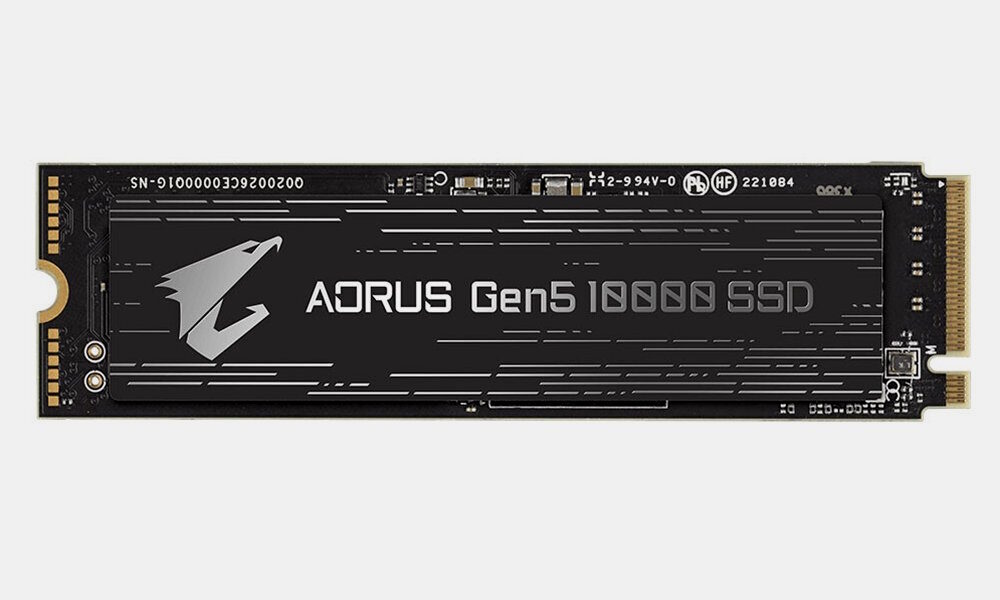
The AORUS Gen5 10000 SSD is the solid state drive that GIGABYTE has developed under PCI-Express 5.0. A sample of some solutions that should give another performance leap in client storage by taking advantage of the most advanced internal interface features in the PC industry.
The Taiwanese manufacturer has announced the formal launch of what will be the second model of this type to hit the market, after the CFD Gaming unit limited to the Japanese market. We already knew about the GIGABYTE model from its presentation at CES and although there is no exact date of availability, it should be available soon in international sales channels.
AORUS Gen5 10000 SSD
The unit uses the format M.2-2280 which is becoming the main and almost unique in SSD. Let’s remember that this form factor offers great advantages due to its compact size that allows it to be installed on both desktops and laptops. Also highlighted its level of performance when connecting directly to PCI-Express. Although they can work on motherboards with previous versions of the PCIe standard, obtaining their maximum performance will only be possible on the latest Intel motherboards (7000 series chipset) or AMD motherboards for Ryzen 7000, which also do not consume slot bandwidth. PCIe used for graphics cards.
GIGABYTE’s drive combines a specially designed Phison E26 controller for these Gen5s with triple-layer 3D NAND flash memory and additional DDR4 cache memory to increase performance when accessing the most frequently used data. It has support for the latest version of the NVMe protocol that makes them self-booting and achieves data transfer of 10 GB/sec on sequential reads and 9.5 GB/s on writes.
Another outstanding aspect of this AORUS Gen5 10000 SSD is its cooling. It’s about a heat sink AORUS Xtreme Thermal Guard which has already been used by the company to cool the chipsets of its most advanced motherboards. It’s a massive size for an SSD, with dual aluminum fins held together by a pair of heat pipes. You already know that SSDs get quite hot and as performance increases even more and this type of heatsink is necessary, at least passive to control temperatures. Motherboard manufacturers also include standard heatsinks that can be used when installing SSDs.
GIGABYTE markets this unit in two versions with a storage capacity of 1 and 2 TB. The manufacturer guarantees a resistance of -at least- 1,400 Tbytes written and a 5-year guarantee. No prices have been provided.




